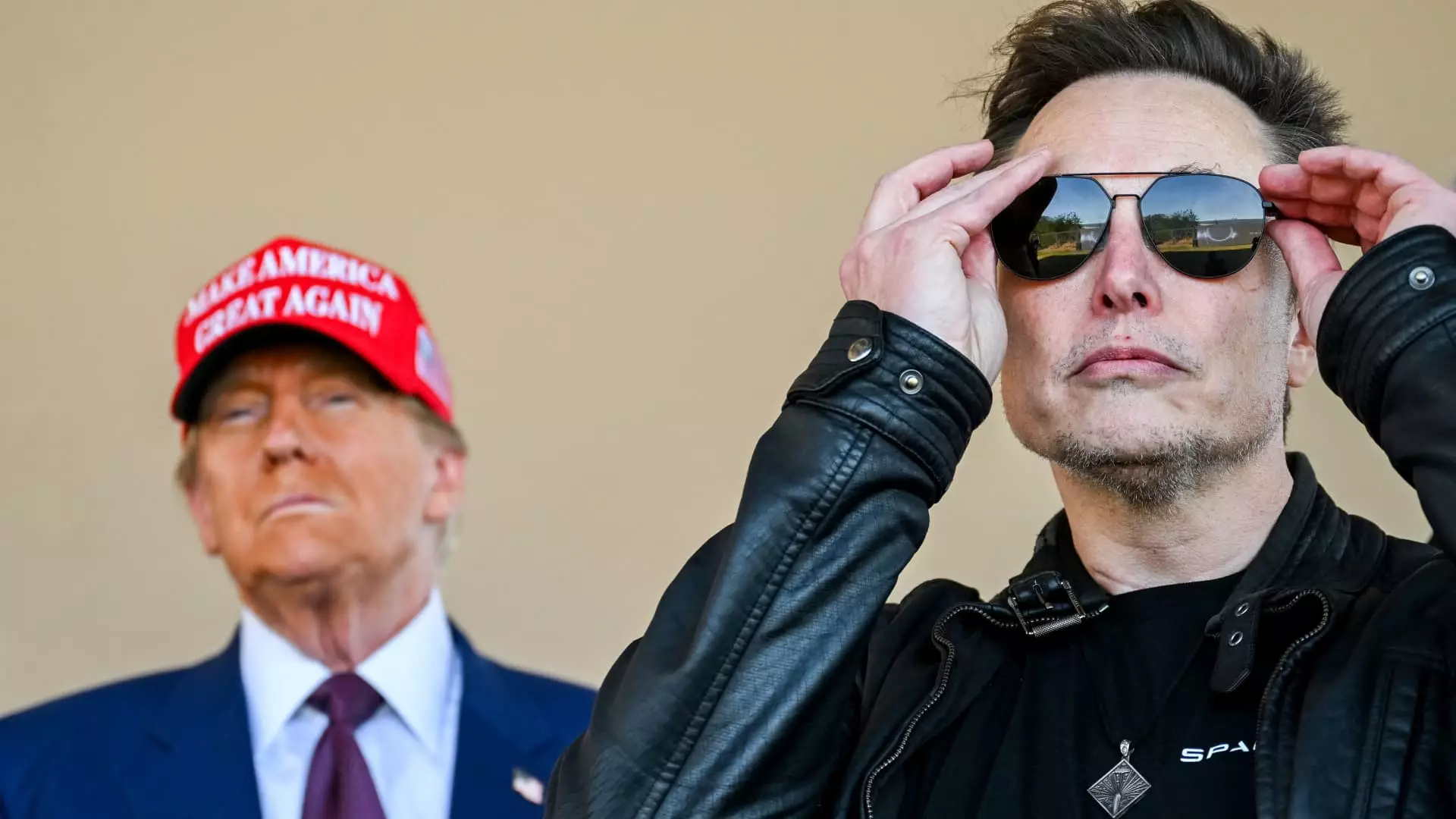The intertwining of social media and politics has reached a notable inflection point in the United States, especially with the recent maneuvers leading to yet another averted government shutdown. Central to this intricate political landscape is the figure of Elon Musk, whose significant online presence and audacious declarations have raised eyebrows among Democratic lawmakers. As President-elect Donald Trump inches closer to assuming office, questions loom over Musk’s influence in shaping policy discussions and legislative priorities.
On a pivotal occasion just before the impending government shutdown, Musk’s vocal opposition to a broad bipartisan funding plan, crafted under the guidance of House Speaker Mike Johnson, sparked substantial controversy. Initially scaffolded by negotiations intended to secure federal funding and prevent governmental paralysis, the 1,500-page legislation stood at the brink of approval until Musk utilized his social media platform. His posts, which included remarks like, “Any member of the House or Senate who votes for this outrageous spending bill deserves to be voted out in 2 years!” resonated with his millions of followers, which inevitably ignited backlash from Democratic lawmakers who perceived these tweets as undue interference in democratic processes.
While some Republicans hailed Musk’s interventions as a means of promoting transparency regarding legislative content, the overall sentiment among Democrats encapsulated deeper concerns regarding a billionaire’s sway over public policy. The juxtaposition of Musk’s social media influence with the established political apparatus raises pertinent discussions about accountability and the implications of wealth in governance.
The ensuing chaos revealed a Congress estranged not only from the public but also from itself, as various factions positioned Musk’s role at the center of their criticisms. Figures like Democrat Jim McGovern voiced concerns that the Republican members capitulated to the whims of Musk, claiming his motivations stemmed from echoing favorable sentiments towards China. This assertion was met with resistance from Republicans who insisted that party unity was paramount, especially given their narrow majority as Trump prepares for his presidency.
The political discourse around Musk also highlighted the evolving perceptions of authority within the Republican Party. Congressman Tony Gonzales encapsulated this acute shift when he quipped that Musk seemed to function as a “prime minister,” likening him to a de facto leader among a political cadre still rooted in traditional hierarchies. Such depictions illustrate the discontent brewing within party lines, implying a shift in the locus of influence from traditional politicians to powerful tech figures.
In an era characterized by the rapid interaction between public figures, social media criticism took on a new hue. Senators like Elizabeth Warren voiced their frustration with Musk’s involvement, reminding constituents that no one elected him to oversee federal operations. Conversely, Republican leaders like Senator Bill Hagerty extolled Musk’s role for fostering legislative transparency—essentially portraying Musk as a necessary disruptor in a convoluted process.
Hagerty’s viewpoint also raises critical discussions about the dichotomy of power brokerage in the digital age. While he credited Musk with empowering constituents through timely information, others noted the inherent risk of allowing a singular individual to steer public discourse and impact governmental proceedings through mere tweets. The conversation undeniably crosses into ethical territories concerning the responsibilities that come with such significant influence.
As Congress gears up for further negotiations, particularly with the next funding deal due in March, there is a palpable anxiety about continued instability and potential chaos. Senator Chris Coons articulated concerns that the tumultuous negotiations witnessed recently may forecast future complications, particularly with individuals like Musk interjecting their opinions into serious debates. The notion that governance may come to be characterized by a culture of ‘rage tweeting’ presents a challenging paradigm for lawmakers attempting to navigate complex policy issues.
The repercussions of this political landscape underscore the need for a radical re-evaluation of how social media figures participate in public policymaking. The melding of unprecedented power with public opinion through social media channels presents a paradigm of influence that straddles both participatory democracy and oligopolistic tendencies, leading to a muddled political atmosphere.
As the situation unfolds, it remains essential for lawmakers, the electorate, and technocrats alike to grapple with the implications of this new-age political theatre, aiming to preserve democratic integrity while navigating the realities of contemporary influence. The questions provoked by Musk’s activities are not merely about one individual’s impact but about how society will collectively address the balance of power in governance going forward.

Leave a Reply